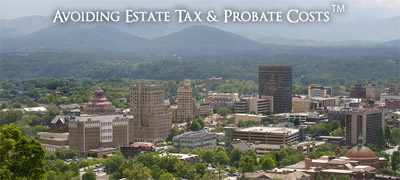Again, if you do not have a valid estate plan, the state has one for you. It will move the assets by bloodline, and it may go to people you don’t know or have never met.
There is a strong reason greed is one of the seven deadly sins. Greed brings out the worst in people. That includes trying to get your trust assets. If your estate plan is poorly designed or poorly implemented, you may be setting up a fight within your family. Many family members never speak to each other again after an estate is settled. Dr. Phil even has a section on that on his website and has done a number of TV episodes about that.
There are creditors and predators that you have to watch out for while a senior is mentally incapacitated. You don’t want to set up a fight between the adult children or between the second spouse and the adult children by doing poor estate planning. One of the worst things you can say is, “I will let the kids fight it out” or “I will let the kids figure it out.” Be specific about what happens so that the kids aren’t in a situation where they are in a dispute where you have created conflict.
A retired Florida estate planning attorney who moved up here to the mountains asked me to do an estate plan for him and we became pretty good friends. I asked him how often he felt there was acrimony or conflict between family members in settling an estate, not necessarily a lawsuit, just ill will between each other. He said one out of three times in an estate settlement. To me, it seems like maybe one out of five.
Business owners who have spent a large part of their lifetime building a business from scratch are often the ones that don’t do estate planning or don’t do good estate planning. If they don’t, they have lowered the value of their lifetime work in the business immediately when they pass on. You need to do estate planning ahead of time. You need to do the estate planning specifically for the business ahead of time.
It is always funny how some people think they won’t ever die, and I have literally heard people say, “If I die,” as if they won’t. I wonder if they know something the rest of us don’t. As my dad used to say, “None of us are getting out of here alive anyway.” We do need to plan for our estate.
One of the things that is interesting is people have the tendency to do estate planning when their children are young because their concern is, ‘If we are both killed in a common accident, what happens with our children? Who takes care of them? Where does the money go? How does that work?’ Then they again look at their Estate Plan, when they get more in their 40s, 50s and up where they are seeing, “I’m getting older. I need to prepare for this.” Sometimes, when the clients get up in their 80s, they won’t do estate planning. They are afraid that if they do that they jinx themselves. However, if you don’t do an estate plan, you are setting up chaos in the family.
I have seen a play in life which is how I would describe it, and it is when the lion or lioness, the head of the family, the matriarch, the patriarch in the family, goes down either by mental disability or they passed on. I see the adult kids come in to the play and start taking action. Often, I will see three characters. One of the adult children will play the role of Switzerland, and they’ll say, “Let me stand over here on the sidelines. Mail me a check when it is over. I don’t want to get involved.”
Often, there is what I call ‘The Dutiful Child’. The dutiful child will step up and say, “What did mom and dad want? What work needs to be done? What’s the right thing to do?” Then, you will often have a third character who says, “How can I take advantage of the situation?”, who will try and move mom or dad’s money to themselves during a mental disability or death outside of what mom and dad wanted in the estate plan.
If you ask a senior who is winding down towards the end of their life, their biggest regret is most often something they didn’t do, an experience they didn’t do. Is there something you are thinking about saying to someone or haven’t done? What is holding you back? It can be something as small as an encouraging visit, phone call, note or email.
I like handwritten notes, something on paper that you hand write out and mail. It is something they can stick in a drawer and go back and look at later. Something you can do for someone else is a thoughtful estate plan that carries out your legacy and helps others without sending unnecessary money to the government. You can do the estate plan so that it avoids conflict between your loved
ones.
I have a book that I have read that was sent to me when I graduated college, and it was by Charlie “Tremendous” Jones, a little thin book. In essence it said: there are really three big questions in your life that determine everything. What are you going to do with God? Who do you marry? What is your career? Everything spins off of that.
An old farmer friend told a friend of mine when my friend was getting married, “If you marry the right person, there is nothing better you can do to improve your life. If you marry the wrong one, you might as well have a broken back in hell.” It seems like a funny story, but in reality, it is true.
Some Native American Indians say, “As long as someone is telling your story, you are still around.” What story will they tell about you? I knew an older lawyer here in town who had turned his tumultuous life around in a good way after struggling for years with alcoholism. He told me that his goal was to make one person smile every day. He told me this one when he was in his 70s and practicing law. I only knew him as a sober person, and he regularly had a huge smile and shared it constantly.
I regularly ask my young adult sons, “Are you part of the problem or part of the solution?” I tell them, “You can only really have one of two attitudes. You can either think the world revolves around you and your desires and others exist to serve you in which case you will be miserable as it does not, or you can choose to be thankful in all circumstances and look at challenges as lessons to learn from. You are more likely to be content and thankful with that mind set and have a happy life.”
NOTE: This is an excerpt from the book, The Legacy You Leave, by Steven Andrew Jackson, Esq. You can buy the book on Amazon or Kindle. Click here for details.
At the Law Firm of Steven Andrew Jackson, Attorney and Counsellor at Law, we have helped hundreds of families protect themselves and their loved ones, avoid Estate Taxes and Probate Costs, and keep their Estate Plans current with the law through The Customized Protective Estate Planning Solution™.







